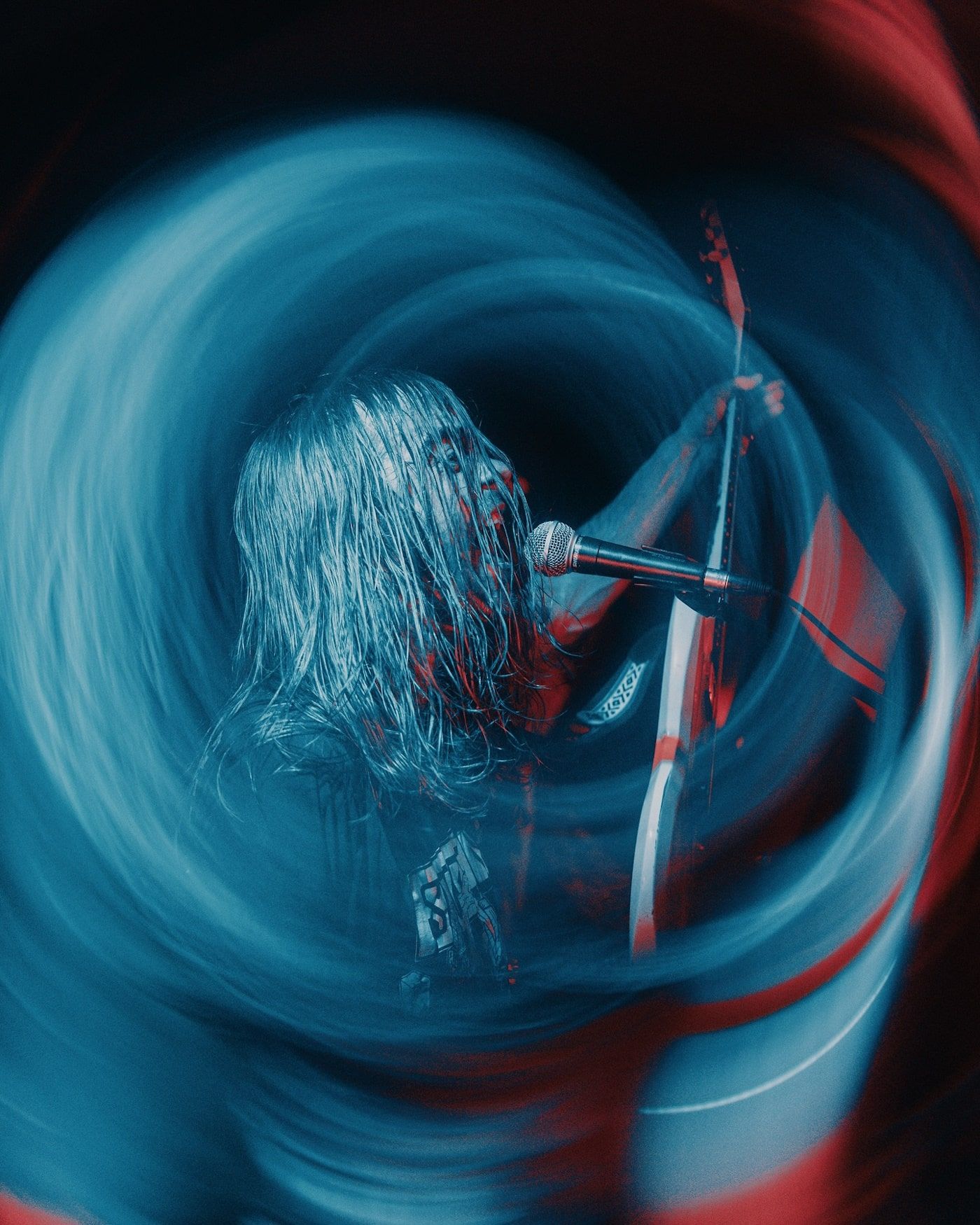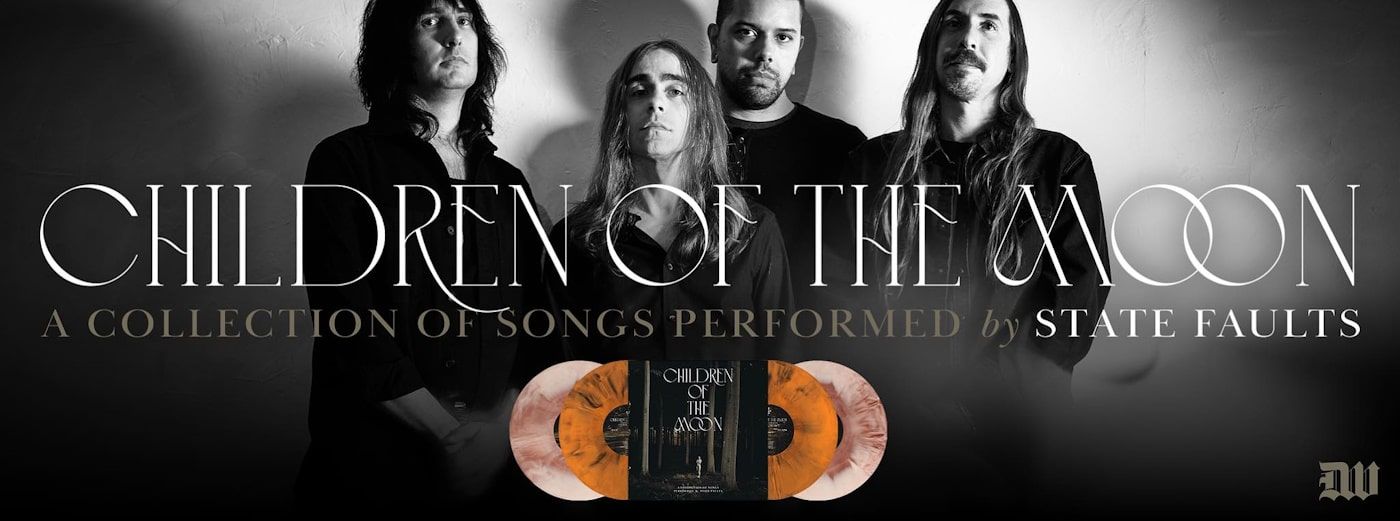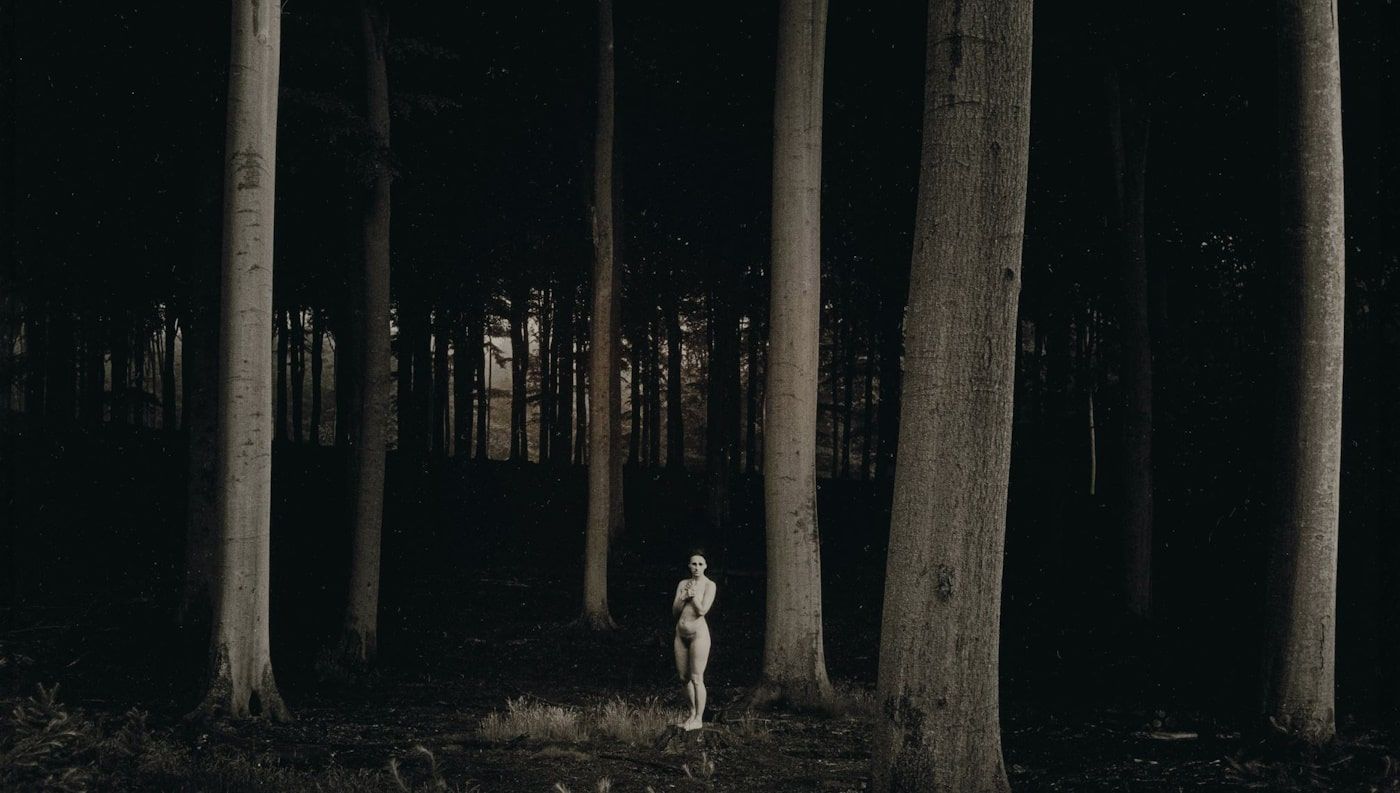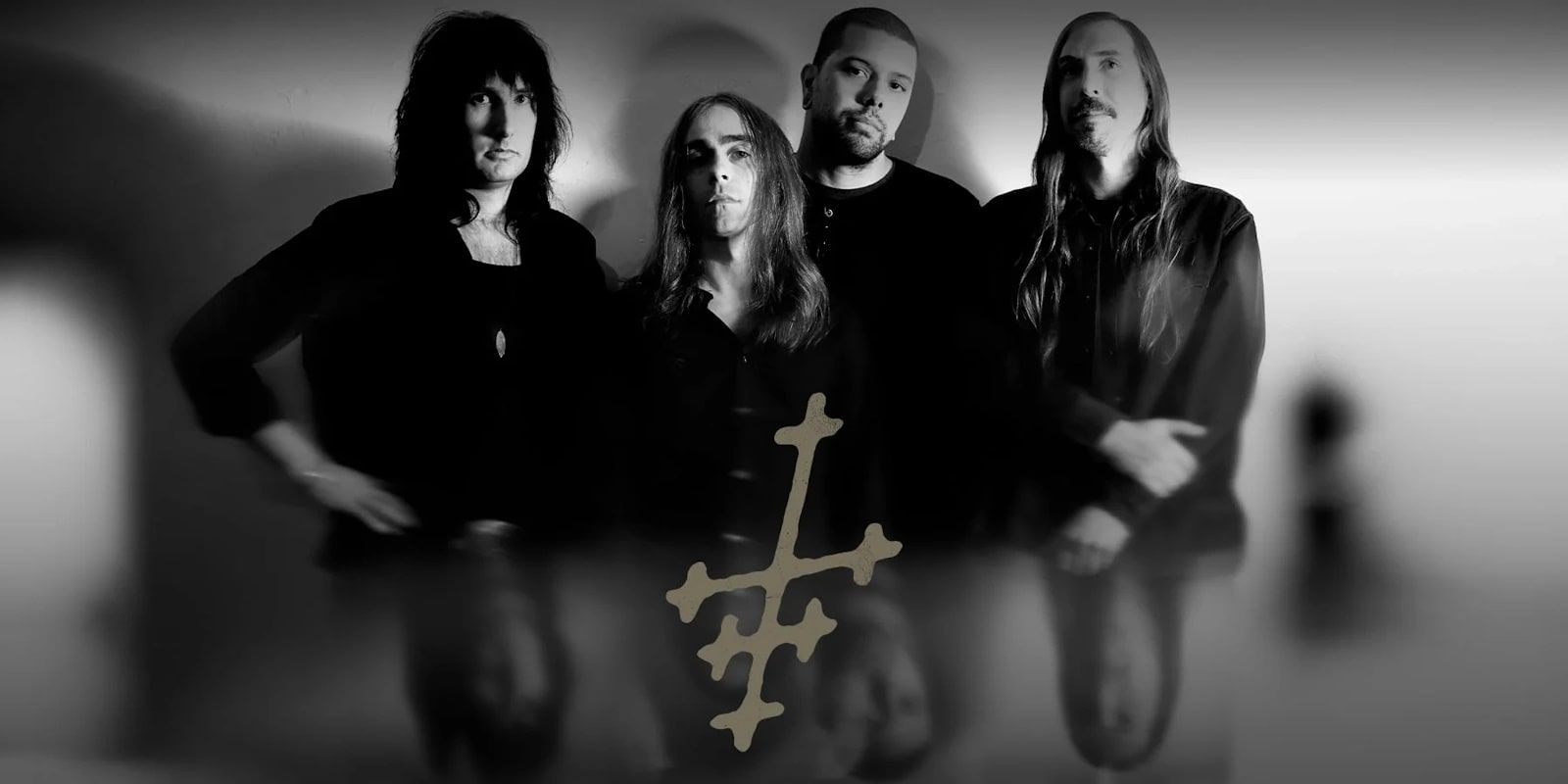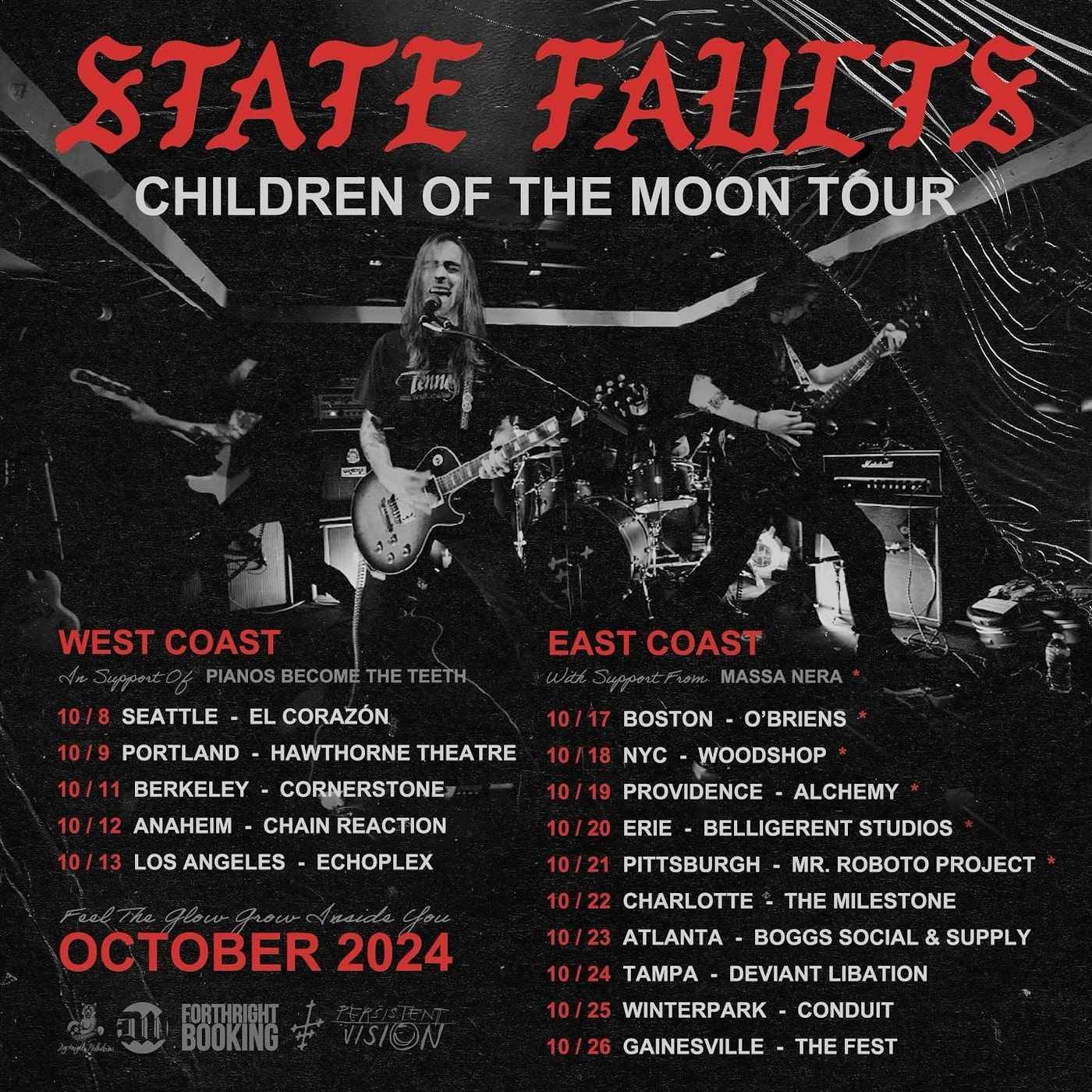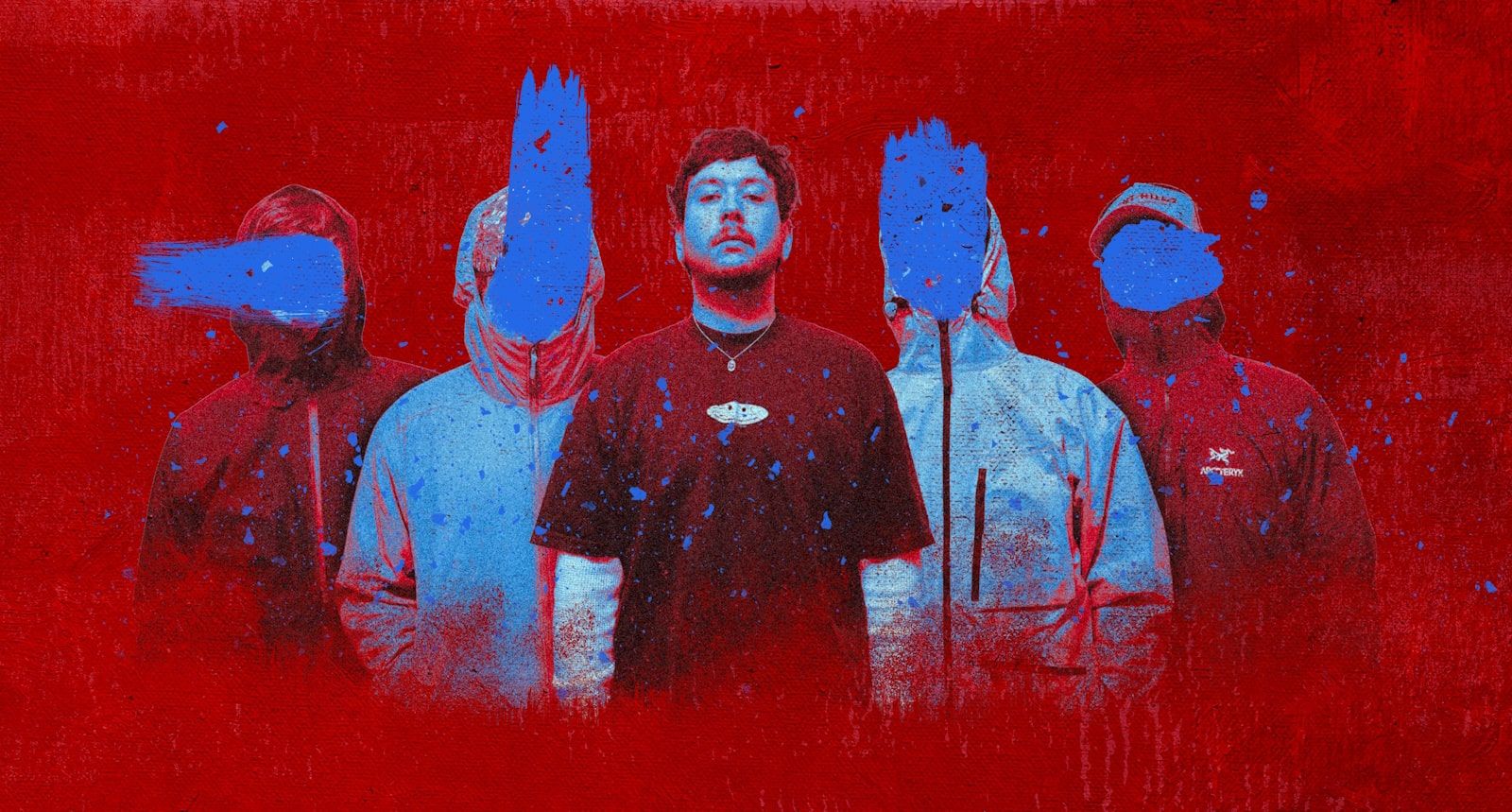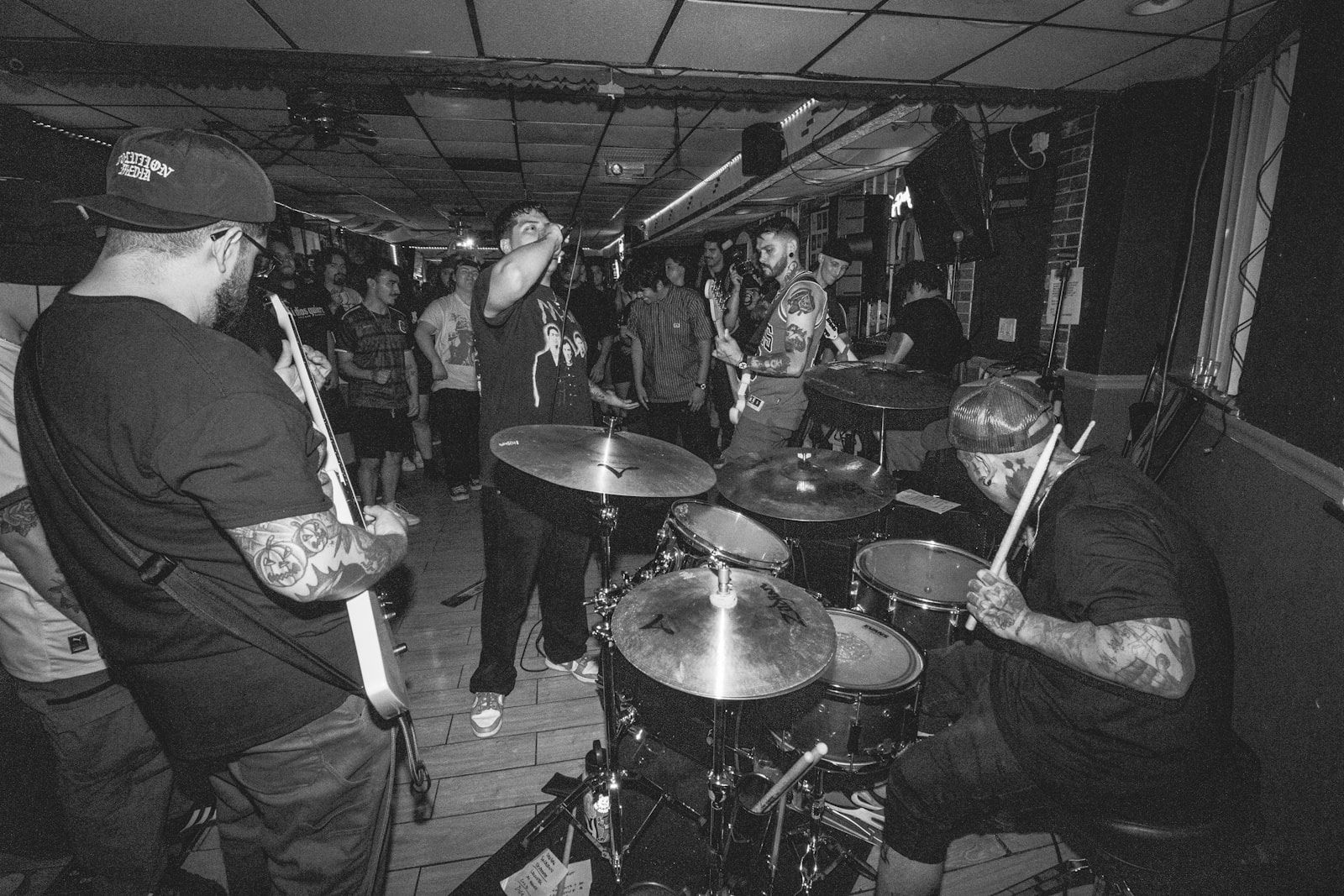Five years ago, Santa Rosa’s natives, State Faults released “Clairvoyant” – a record that extracted equanimity out of the chaos with its destructive, yet soothing sound. With their quick-minute oracular single, “Moon Sign Gemini,” became one of their staple tracks that reinforced the power of the “Flower Violence” genre.
“Clairvoyant” proved to be a memorable record that clearly set the stage for their recent cinematic release of Children of the Moon. As singer Jonny Andrew eloquently put, “it was about the feeling that the floor is falling out from under you,” illustrates his genuine pain that spawned transformation throughout the creative process. Within this seventeen track sonic agglomeration, State Faults finds a new format to tell their “coming of age” story of heartbreak and the inevitable path to change. The metamorphosis started with the release of their anthemic first single, “Palo Santo,” which ironically, was the first track written for the record and created the irrevocable path into their new world.
Children of the Moon is a record about hope. Touching on subjects such as divorce, loneliness, heartbreak, etc, State Fault uses their canvas to tell us where they have been and where they are.
Working alongside the audio engineer and guitar player Chris Teti from TWIABP (The World is a Beautiful Place and I am No Longer Afraid to Die) at SilverBullet Studios in Burlington, Connecticut, State Faults spent three weeks carving out this collection of songs. Once finished, it was mixed and mastered by Jack Shirley at The Atomic Garden.
Children of the Moon is released on Deathwish Records and Dog Knights Productions.
Since their early twenties, I have had the privilege to watch this band blossom. They consistently found ways to push each other and keep their sound unique and fresh; however, the one constant that remained a strong pillar is their friendship. This characteristic allowed their fierce evolution to manifest. Each record before embodied a specific stage, but to me, CHILDREN OF THE MOON unapologetically exemplifies rebirth.
About a month ago, we all got together for a coffee-date and sat under a tree. We discussed everything: from their evolution from a three-piece to quartet with the addition of bass player Jeff Overn, Drummer Jared Cortland becoming the “band Dad” by taking on management duties, and the growing pains of what it took to make this beautiful record. The wait was long, but worth it. This is what they said:
Intro / names. What is your favorite food ?
Jonny Andrew – I sing and play guitar, and I like pizza
Jared cortland – I play drums and manager
Jeff Overn – Bass and I like to party.
Michael Mitch Welden – I play guitar and also like to party.
Where did this record come from?
Jonny – We pretty much started writing right away after “Clairvoyant.” I know that the first song that was written was “Palo Santo.” That was written a month or two after we recorded “Clairvoyant.” Most of it was written during the pandemic.
Jared – Everything got canceled, so we said, “we should probably write another record.” Then we booked studio time in November of 2020 because we wanted to make a deadline. And somehow, we ended up writing 17 songs. That was the most we’ve ever written for an album.
View this post on Instagram
Was there anything driving the writing process? Was there some type of inspiration?
Jonny – For me, writing was definitely an escape. I was living at home with a relationship that was at the end of its life. Yeah, that’s where I would go to escape. U would write and record. That’s where a lot of my energy was coming from. Lots of changes. Lots of changes.
Jared – I am always chasing after a record that flows. Not a concept record, but one that feels cohesive. I don’t know, but for some reason, I had a lot of depression after “Clairevoyant” finished. It’s not that I didn’t like the songs, I just wasn’t happy with it, and something about it bummed me out. Because of that, I had a lot of motivation to do something big with this record. It was cool to have time and not have to work. We had two or three practices a week and we really felt like we had all the time in the world.
Jonny – Yeah, it’s every musician’s dream to have time. To write a bunch of songs, record, listen back, and re-record. It was nice to have that.
Jared – So we took all the frustration of everything getting canceled and turned it into creative energy.
Michael – For me, it was different. It mostly was all Jonny. He was the genius behind all of this. Him and Jared did most of the arrangements and at the time I was playing bass, so I add stuff here and there. I didn’t create the most, and not from a lack of trying or caring, but kind of what Jonny was saying, he was on a role. I was kind of lucky I just got to show up and the song was pretty much done.
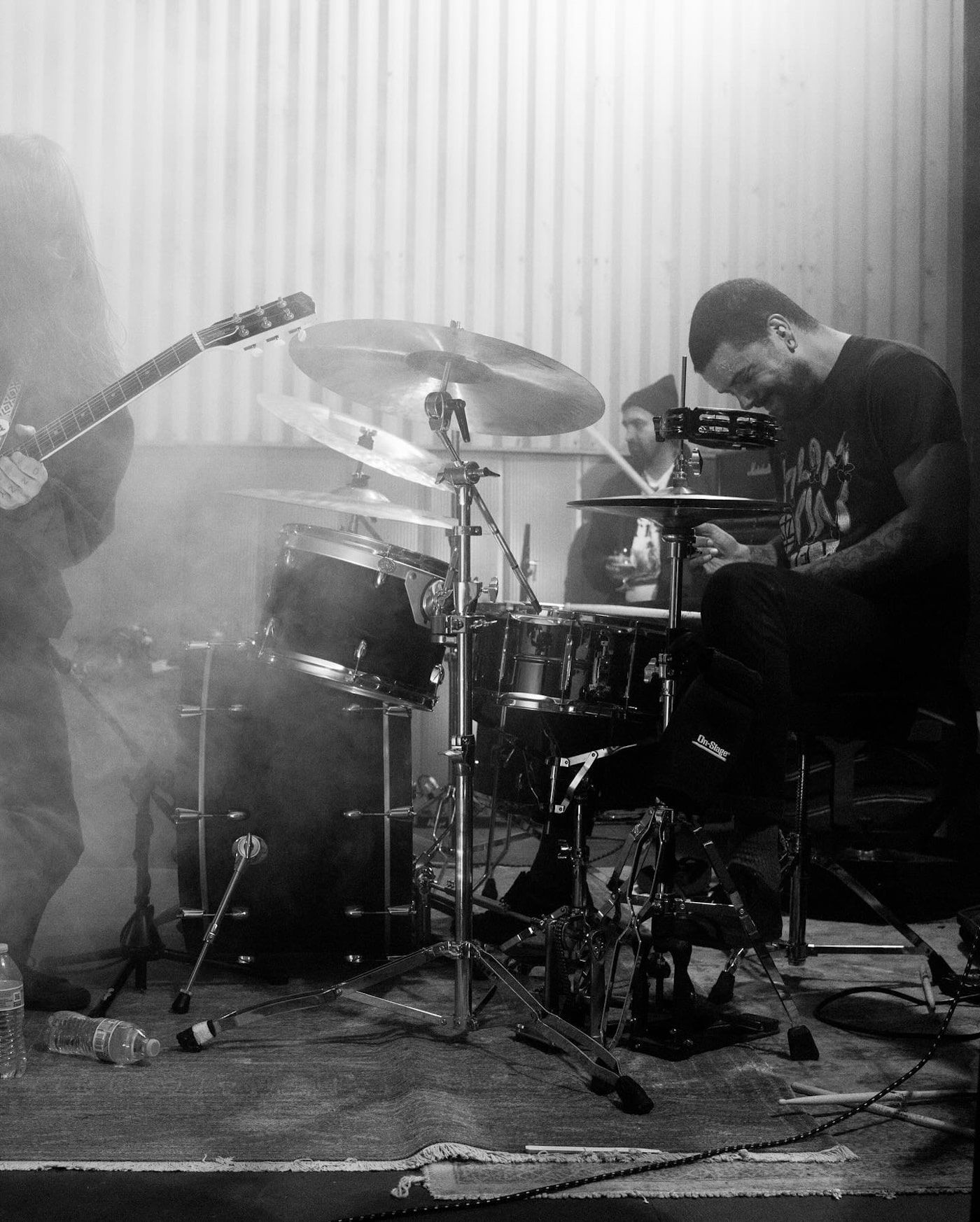
Jeff – what about your headspace ?
Michael – Around that time, I did leave the band. It’s so cliché because everyone had a hard time during the pandemic, but I was very down in the dumps. I had just gone through a break up and lost my job because of Covid, and at that point we had been in the band for 10 years. And you know, it’s hard to be in a band; try to do your thing; and try to make it work. I was just feeling jaded and sad about everything and I didn’t know how we were going to be able to maintain this. We all sacrificed so much: we all quit our jobs, a lot of our relationships fell apart, and a lot of us took on debt to make the band happen. Then when Covid happened, I decided to go back to school and tried to figure out a plan B. I just wasn’t happy at the time and I was trying to figure things out. I was getting fucked by life and I was trying so hard to make it work. That’s why I decided to leave after we recorded this album. I just wanted to find a better work-life balance.
Jonny – That was a big shocker for us. When he came to practice with that news, we all felt it was hard, but it was understandable. We grew up together, especially in this band, at that point it was 10-11 years, so you learn to communicate with each other, but not still not perfect. The stress built up, and we probably could have handled it better back then.
Jonny – But it all worked out in the end. This event blessed us with Jeff joining the band. He’s the only dude we asked. We asked him to learn 4 songs and he came to the first practice with 6 songs done.
Jeff – I was fucking around. I was ready to roll.
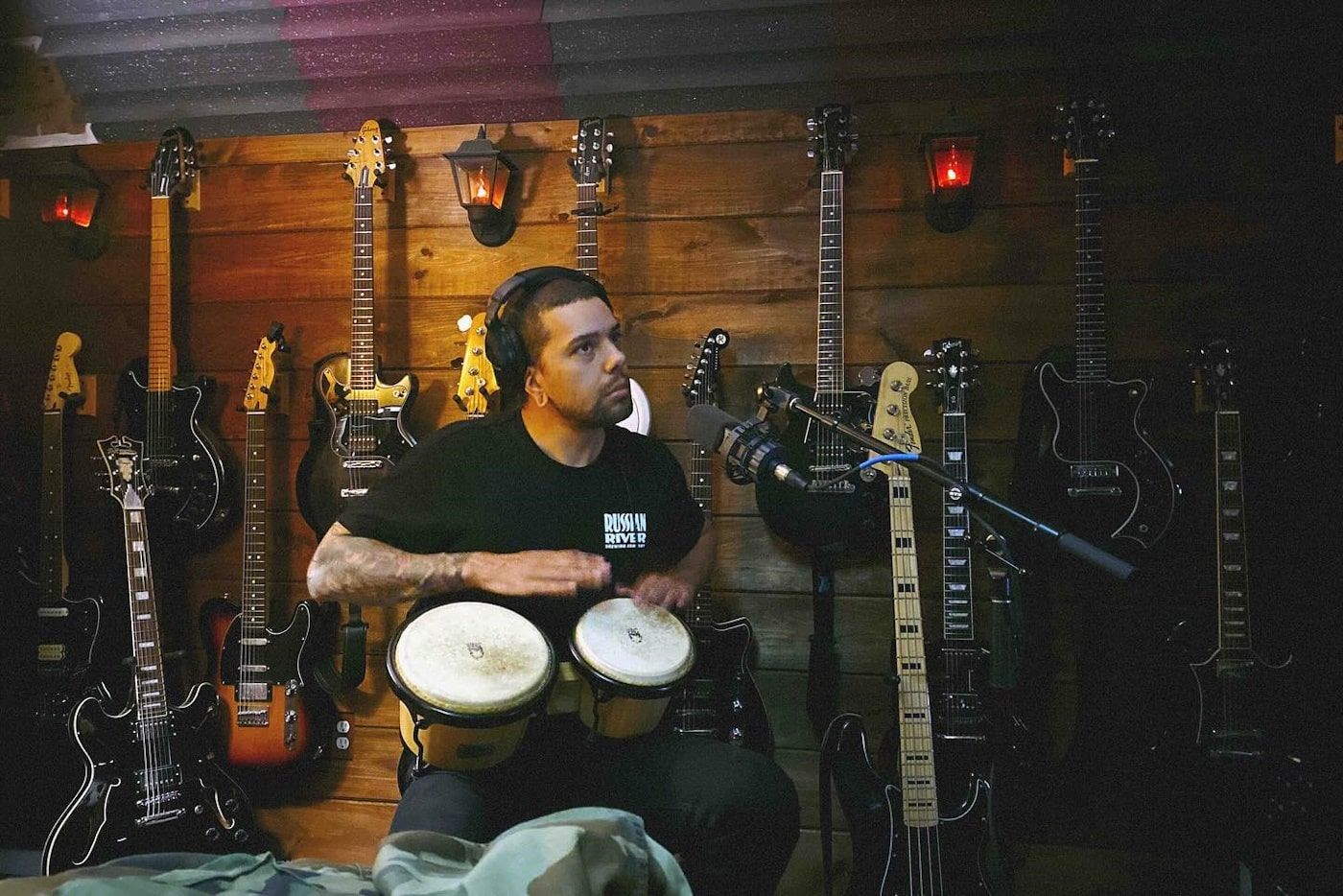
Michael – Jeff was cool from the jump. He even texted me before he joined and said if it was cool and that he didn’t want to step on any toes. I thought that was so cool and nice. He even asks for videos on how to play the song to make sure he does the songs justice. There was never any animosity or hate because I never wanted the band to fail, so it was really nice.
Jeff – Also, y’all are literally such close friends and that’s a little intimidating cause not only are you filling this role as a band member but there’s this gap in friendship. Michael is such a big part of the band that it was felt. But when I jumped in, I immediately knew that this was my tribe.
Jonny – He stepped right in and lit the fire under us and made us a better band.
Jeff – They’ve been really fucking gracious with being a part of the record. I heard all the mixes and demos and got to put my two cents here and there. They didn’t have to do any of that but they were so kind. I appreciated that. It’s been such a dream.
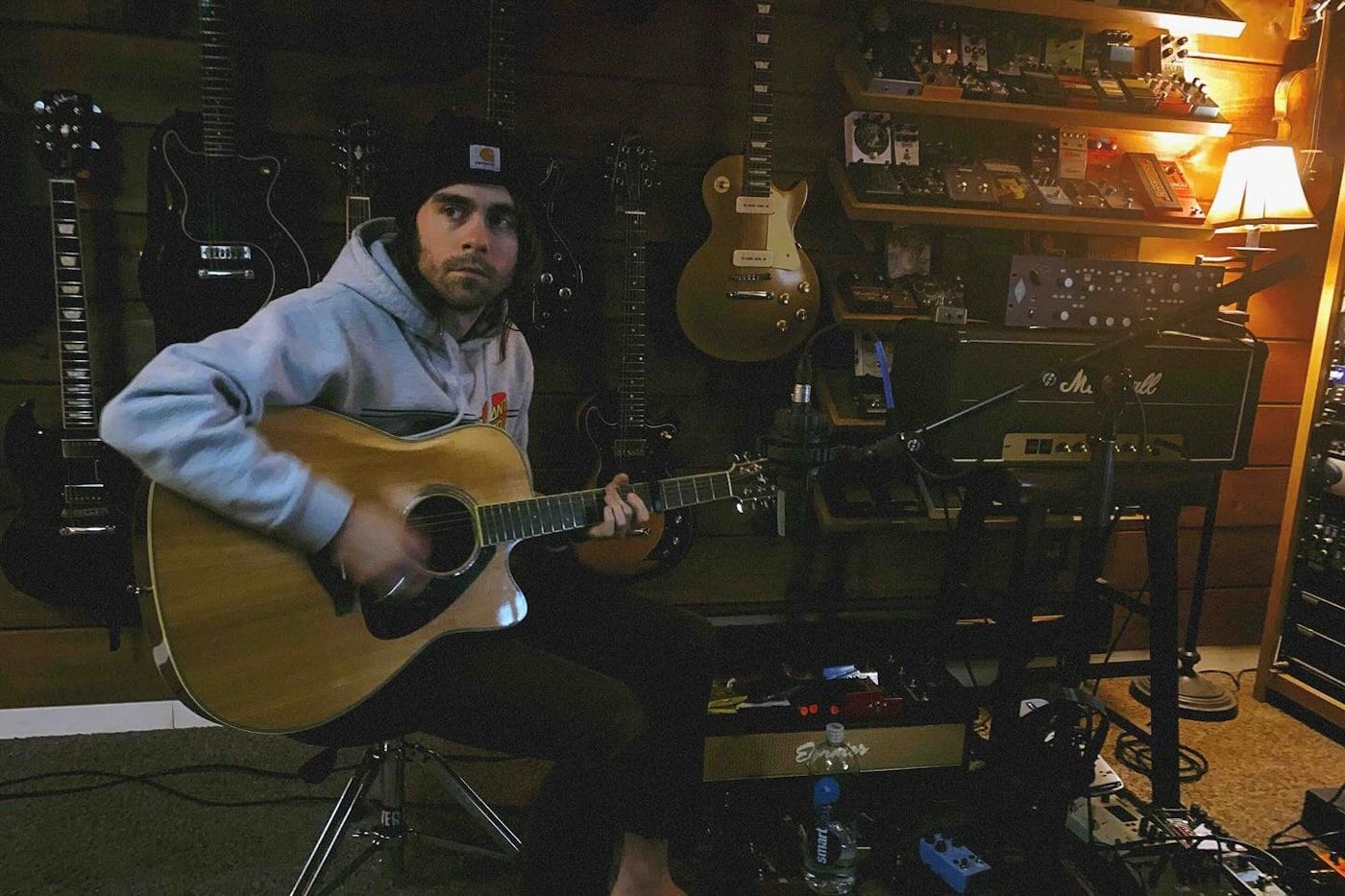
Where did you guys record?
Jonny – we recorded with Chris Teddy at Silver bullet Studios in Connecticut. We had three weeks to do this one compared to our last two, where we did them in 4 days each. Having that much time to live in a studio and having time to expand on each song and build them up more than you could have imagined.
Jeff – Was there anything hard about that and having that expended amount of time?
Jonny – Kind of. It can drive you crazy. It’s definitely not the live feel, where we tracked this track by track.
Jeff – I know that we had a long post and made all the connective tissues. Jared worked on all the in between songs.
View this post on Instagram
What’s the record about?
Jonny – Shit. It’s about grief and loss. Feeling like the floor is falling off from under you and just wondering where to go next. A culmination of feelings of that time and where to go next. Like I said earlier, me going through my divorce and having to figure out where to go from that and Michael going through his stuff.
Jared – A lot of the songs were written before your divorce became official. There was a lot of chaos and crazy things happening, and a lot of crazy things to come that would unfold within the next two and half years or almost 4 years. To me, one step removed from where Jonny’s headspace was, it felt like all the lyrical themes and a lot of things happening in the record were foreshadowing. There was a lot of chaos happening within the band. Stuff that was happening. Stuff that was gonna happen. It’s kind of insane making the record what it is considering that the band almost fell apart numerous times. Like last year, we were about to call it. We were just going to put it out and play farewell shows.
Jonny – Yeah, I almost had my Michael Weldon moment, where I left. I just felt overwhelmed and stagnant. We were also dealing with a bunch of bullshit on the back end. I think the biggest thing in each song is trying to understand what the fuck is going on with you at any given moment. Like what is going on in my heart and my mind? Why do I feel such chaos? And it’s that desperate attempt to find something solid to hold on to. Each song pretty much deals with that.
About the lyrics, there’s a lot of nature references, but one thing that stood out to me was the moon. That one came up a lot. There were a lot of moons. What does it mean?
Jonny – I don’t know if there’s a real significance other than the moon is the biggest celestial figure in the sky besides the sun. It’s always there. It’s always in our lives. There’s always a lot of stuff in our lives that’s always looming and heavy and big, you know? Stuff that controls and pulls you like gravity the same way the moon does. I know it’s a bit “hippie-dippie-ish” in a way, I guess, but it’s me finding something through it. I mean, in a very basic way, the moon represents the depression and struggle that we all carry. Everyone on earth is dealing with their own struggles, their own shit the pulls at them, so we’re all brothers and sisters in that way.
Jared – It’s like what I mentioned about the chaos and all the unforeseen things we didn’t know were gonna happen, and currently happening within the band. It’s all connected. It’s like plants and the tides are connected to the moon. There’s so much being controlled or directly affected by this body that’s out there. I connect with that a lot. We’re all its children and we all feel the effects. You can fight against it or try to figure a way around it. Be one with it, and be more connected to it. I think it’s very analogous to what our lives were like during the time of writing the record.
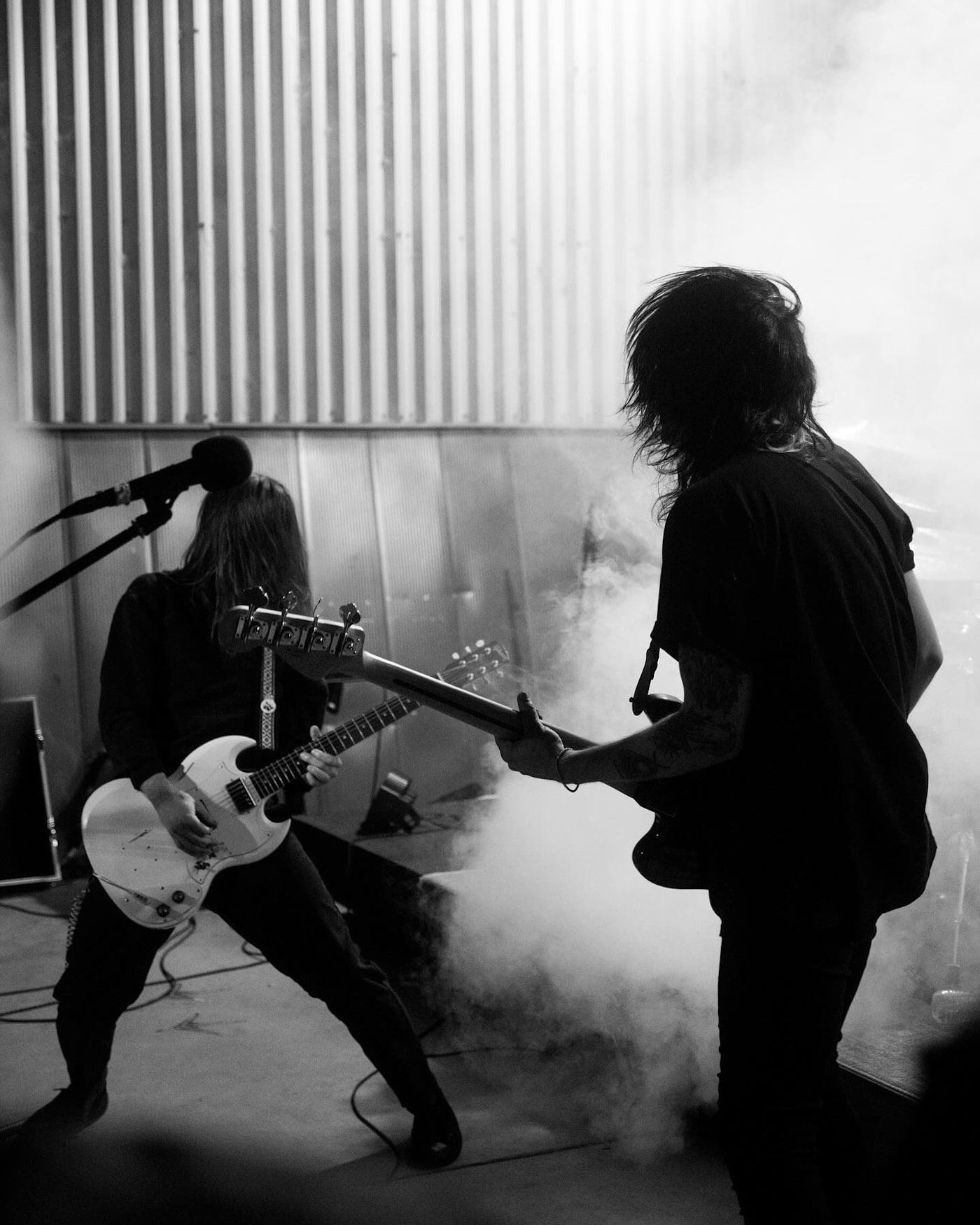
What was the glue that kept it from breaking up?
Jonny – Just us, the friendship and playing together.
Jared – Well, we all decided that that was it and maybe we’ll play another show. We did another weekend thing that we already had booked and did that. We wrote a social media post, which was a bit cryptic. And maybe a week after that we got a pretty big show offer and that’s where we met both of our booking agents. And not too long too we got connected to Deathwish. Michael came back. Then, it started to feel that everything was aligned again.
Michael – At the time, I was in the grind working 7 days a week and Jonny had reached out. He had mentioned that he understood why I had left and was also feeling it. We bonded about that and it was nice to open that line of communication and connect on that level but I also didn’t want him to quit. But that did lead to us talking and hanging out again, which led to jamming again.
Jonny – A band is a super emotional project and especially as the lyricist and I’m an emotional guy. I really do appreciate my bandmates putting up with my volatility sometimes cause I can be hot and cold.
Micheal – That’s what makes the band special because it’s a working relationship. We’re all best friends and it makes the project that much better because it’s more intimate. But that’s also what makes it hard because when we get into a fight or one of us wants to leave, you can’t help but to take it extra personally.
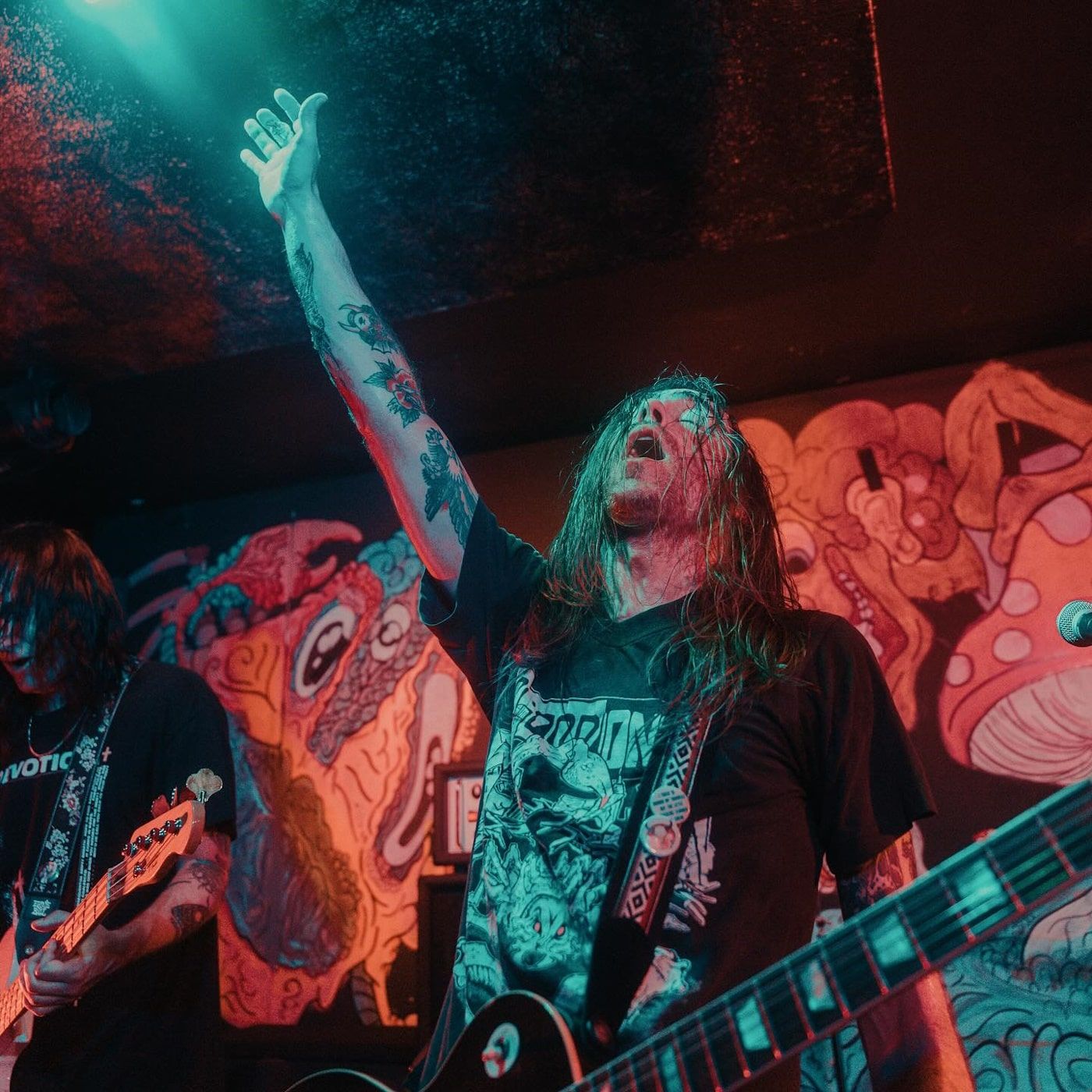
A lot of people don’t see that side of bands and how hard it can be to compartmentalize the relationship from the art and the business as well. Speaking of the management side, I know y’all decided to take on that role. What was the like or looked like for this record?
Jared – Yeah, we had a, we had a manager for a while, but that didn’t work out. And I think he was just no in it. I think he was half out. I don’t want to speak for him, but he was busy with a lot of other stuff. He didn’t really work as hard as we had thought he was going to work, or that he gave the impression that he was going to work.
There’s some frustration there for about a year or so. We just thought more things were gonna happen out of that. And so once that kind of petered out, around the time that we finished the record, he kind of disappeared. After that, I just decided to take on the responsibility, and it worked out for the best.
Michael – He is like the band dad.
Jared – I found out that I like details more than I thought. I’m particular, and I figured I may as well just make that a strength and asset for the band, so I just had to step into it, but it helped me to communicate a lot more. Not that I’m not great at communication, but I struggle in some areas, and I’m very opinionated, and so that’s can be kind of a weird thing if you’re super opinionated, but you’re not always good at communicating the right things, or you just have to reconstruct how communication is going to be effective, because I’ve got my best friends, but then I’ve also got this band that we’re sort of trying to make it a business. And it’s just, it’s a lot of reassuring everybody that, like, Hey, we’re friends first, and this has to be fun, right? And so once it stops being fun, then it’s not even, why even do it right, right? You know? So that’s a big I think it was a big area of growth for us to do that communication and to work smarter, not necessarily harder, but it just all has kind of come together. I’m sort of just a little, I’ve been a little overwhelmed with how things just snapped back into place once we were ready to just throw in the towel. I guess we weren’t really ready to throw in the towel. We were reluctant, I guess this is what we’re gonna do. It just felt like nothing was working. But then it’s like we took back the reins, and then things started working again. I think the biggest thing is we all decided that we’re gonna stop waiting for other people to make decisions for us, and decided to take back control. We did things ourselves, back to DIY. Yeah, taking back some control of that stuff, and especially the more nebulous, like management stuff, thinking that somebody can come in and know what’s best for you.
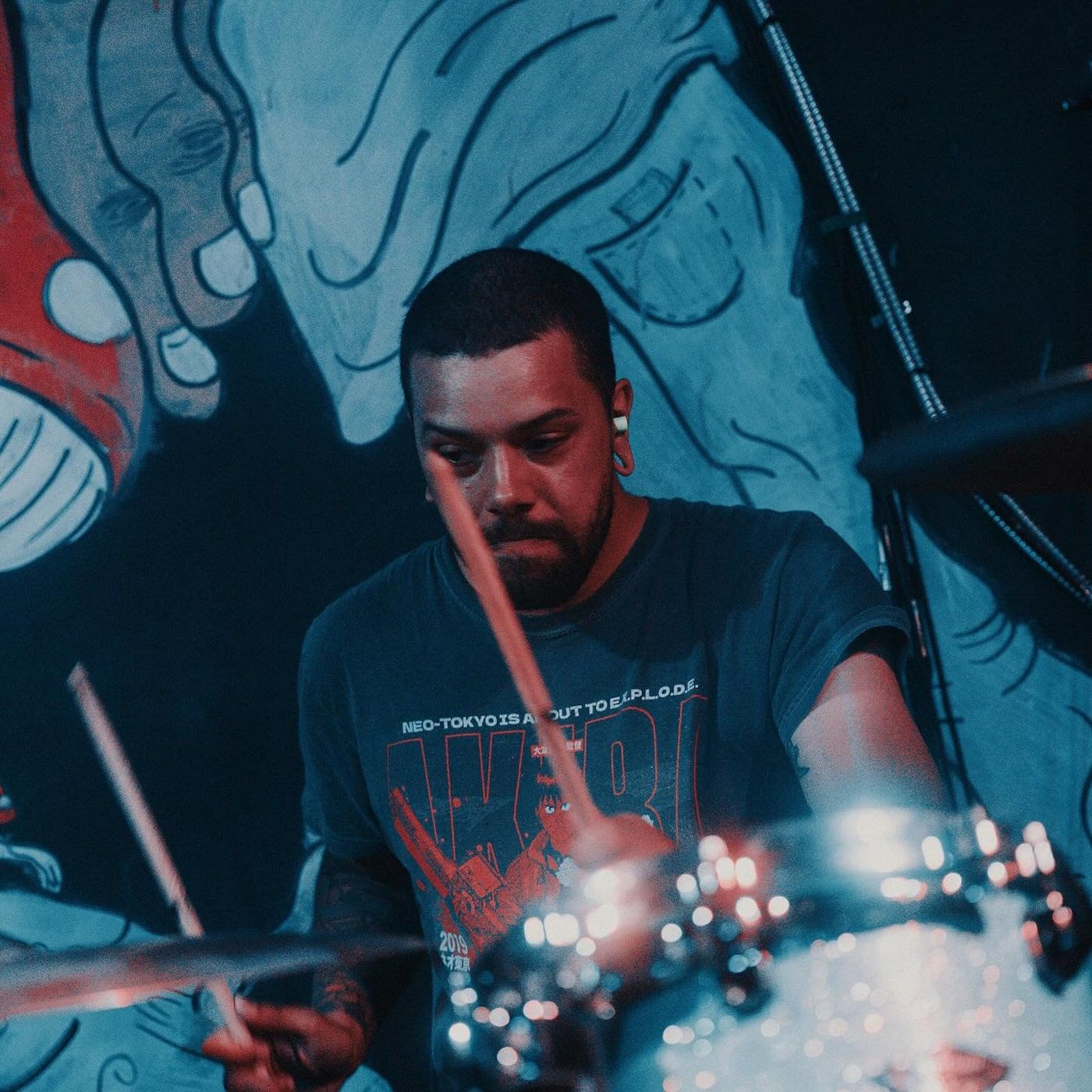
Yeah, that’s the part that I find that bands have a hard time with. Like, how do you manage the project? What does it look like? What is it that you have to do?
Jared – I tried my hand at booking, and that’s not my strength. I reached out to some people who knew more about it than I you know, a lot of it is, like, when we would come to LA and I’d hit you up because I know that you’re a lot more connected down here than I could ever be, and just relying on people who can, who are, who do the thing that you need help with better than you do, and people that you trust, and that can be tough. Also, networking is very important. Sometimes it feels like we’re scared to network because it’s like you’re trying to get something and it’s perceived incorrectly. But it’s not like that, we’re just trying to make it all together, right? Networking is hard, and you don’t want to impose on people, right? But there’s polite ways to do it and there’s impolite ways to do it. And so you always, and if you’re gonna network, you want to be sure that you’re also doing your part two, to help people out when they need something from you. Networking is really important, and being a part of your community is really important, and not being afraid to ask for help when you need help, because doing it yourself is great, but if you’re struggling in a certain area. That was the other thing too. It’s just delegating more to I mean, we’re a group of four people. We’re a group of four people, so we all can do stuff, and it doesn’t do the band any good for one person to try and take everything on.
Michael – I think that’s going full circle. That’s part of the reason why I think everyone was so stressed out in the past, because there was this idea of like, Okay, Michael is responsible for x, y and z, and then Jared has to do X, Y and Z, and instead of trying to get help or collaborate, it’s kind of dumb, yeah? We were like, well, that’s just what he’s always done, and that’s just what he always will do. So he takes it all, yeah? But now, one person is stressed out, and you don’t really know how else to reach out for help or change it. But now it’s a lot more collaborative.
Jonny – Well, it’s been awesome. I mean, yeah, with Jeff coming into the band, we have another artist in our band too that can help take stuff off of Jared, yeah? You know, we can all help out, you know, doing social media stuff. Basically anything we can do like merch. Like Jared said, over the past year or two, we’ve gotten really good at communicating. And I think that’s the important thing too, is when you’re trying to manage a group of people, communication and making sure everyone is where everyone’s at and what we can all do.
Jeff – It is important in all aspects: band, relationship, friendship, etc.
Jared – I told them, If there’s some big opportunity that comes up, but for whatever reason, I can’t do it, then we’ll find somebody who can drum for that run like, yeah, the way we have to approach this, or the way I am trying to approach it, is like being future focused. If you,
take these opportunities to work smarter and take the ego out of it. It helps you be more successful in the future. Even if you have to go a little bit slower or, like, make adjustments, like, it’s better than trying to force something.
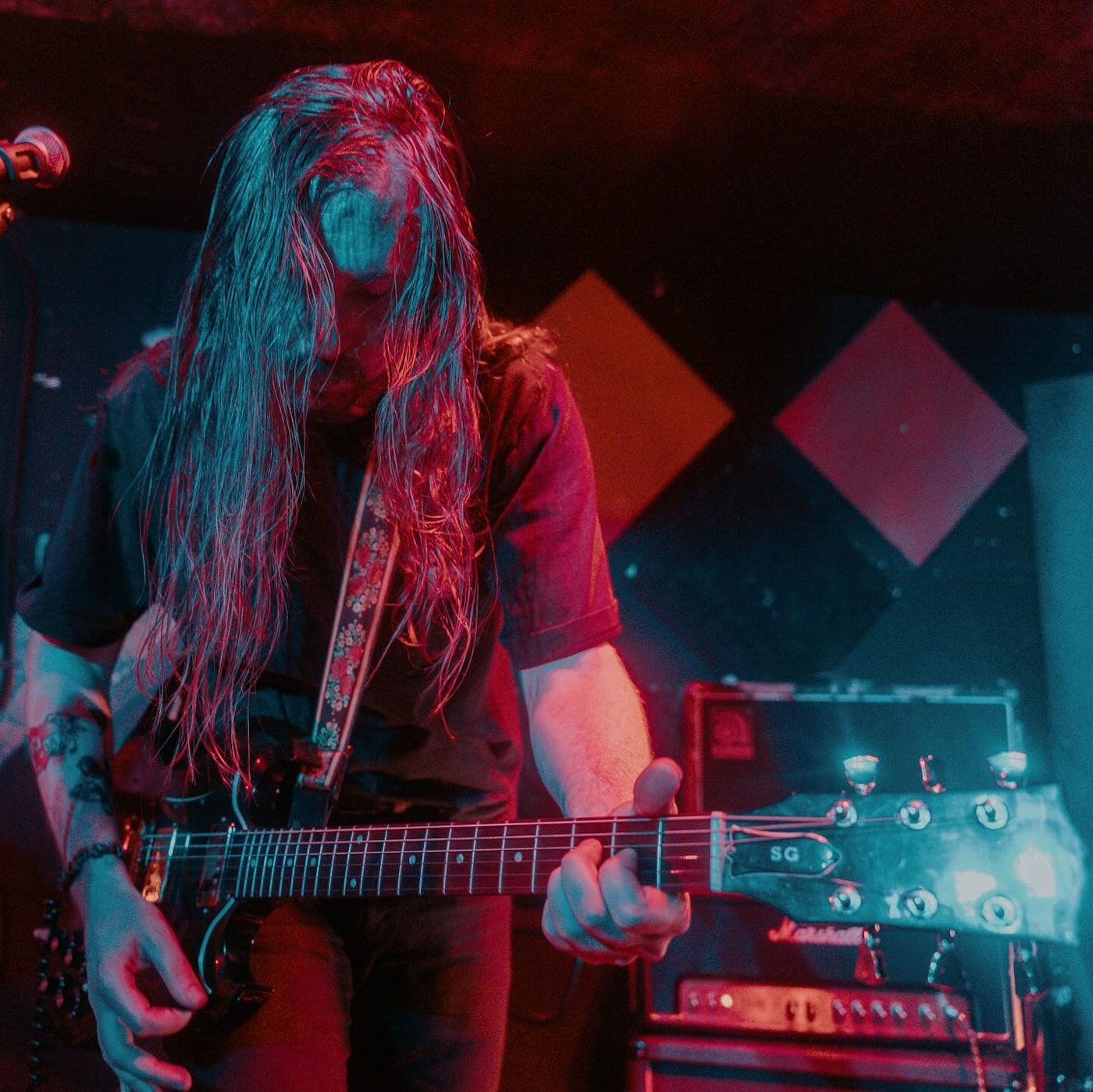
Jeff, what’s your experience been like: getting in the band, jumping into this record, doing the tours, and your contribution now?
Jeff – It’s been fucking great, man. The whole time has been like a dream. Just feels like I’m coming home, you know? I feel like this is exactly where I’m supposed to be and these are the guys I’m supposed to be playing with. We’ve all just been on the same page since day one. You’ve been in a lot of bands, you’ve played with a lot of different people, and there’s always a lot of compromise that seems to happen in those situations. Also, you don’t always vibe with everybody, but these guys, like, right away, like, holy shit, we’re good friends. We all have the same sense of humor, the same drive, the same work ethic. It’s everything I wanted it to be, so that’s been fantastic. And the songs are just absolute pleasure to play and fun to get to learn all the things. But they have a huge catalog. About 40 songs.
Did you learn all 40 songs?
Jeff – Pretty much. We’re constantly rotating the set list. So we’re always like, throwing in some, some old songs, the new song. Like, it’s always fucking changing. So I’m like, I have to be at the ready to know all these, these 40 fucking songs at all times. It was a really fun challenge. But the songs are so fucking rad.
Were on the recording, Jeff?
Jeff – Because it took so long for the record to come out, it gave me an opportunity to get on it. I did a lot of back up vocals, so that was nice.
How did that happen?
Jonny – Well, during the process, I had five days to do vocals for seventeen songs. At that point, I wasn’t really practiced, so I ended up blowing out my voice. I ended up not being happy with my vocals, so we ended up redoing all of them
Where at?
Jonny – Just at home sometime in 2023
Jeff – And this was the perfect opportunity to do that. Especially, since Jonny and I do a lot of vocal warm ups together. And this was one of things that changed, when I came in the band because I rely a lot on Jonny’s vocal cues.
Wow, this record has really gone through several evolutions, and people don’t see that, they just see the pictures and hear the songs.
Jonny – Yeah, it was crazy. Back and forth with the mixing took a bit, there was a master we ended up redoing, we added a string quartet to two songs, some organ to another song, and other stuff.
Jeff – It’s been a real journey, but at no point we did not believe in the record. That’s always been a thing. We always knew the record was great, and we all loved and believed in it.
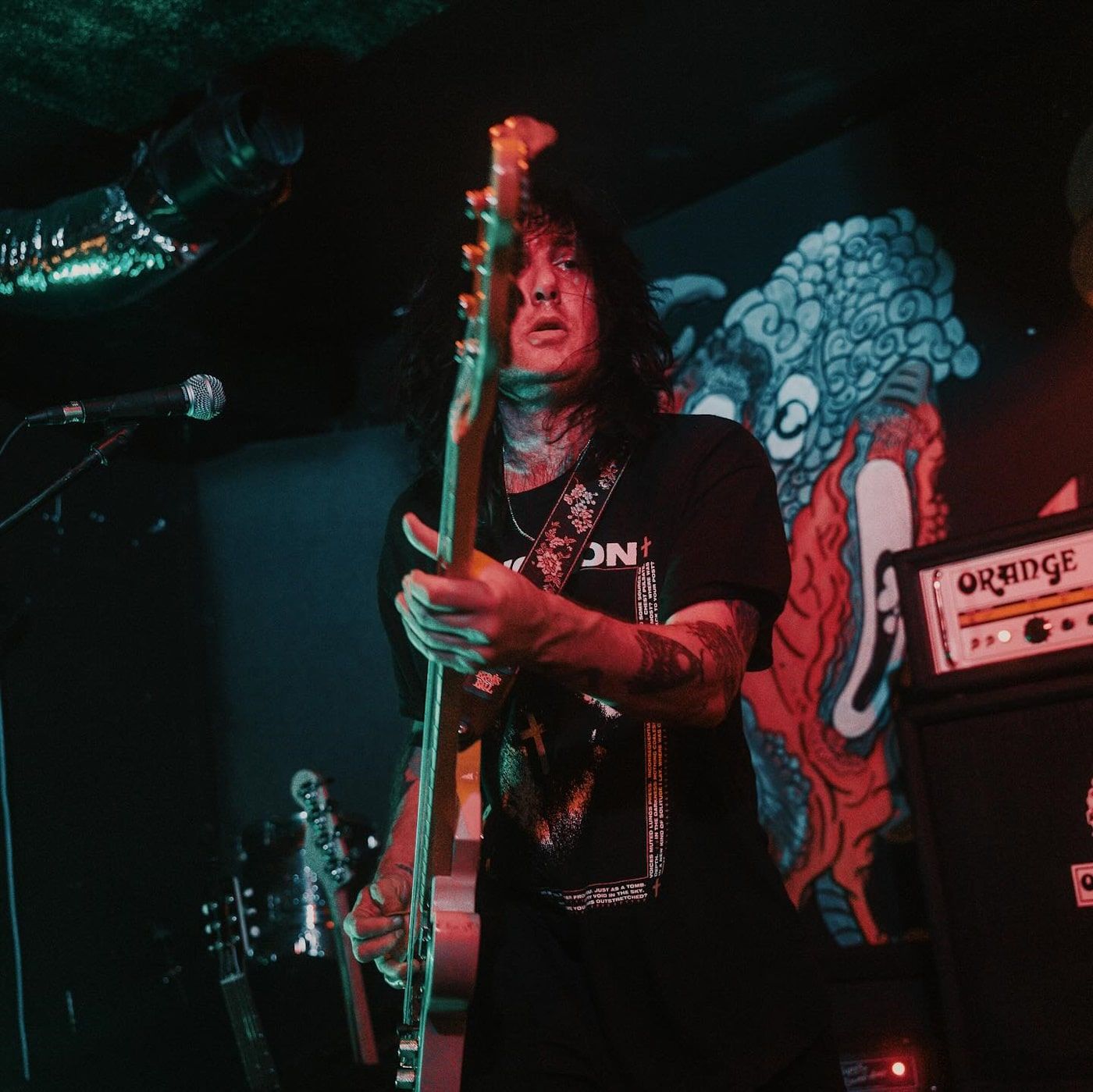
What’s next?
Jonny – Next is playing as many shows as we can. Touring as much as we can. Writing more songs. We already started writing a bit and making little demos here and there. Gathering some stuff, and hopefully we don’t take another five years.
Shout outs?
Everyone – Shouts out Machinekit, John, Chris Teti from The World is, Jack Shirley for mixing it, our booking agent Ryan, our boy, Darren at Dogknight records, Deathwish Records.
Jonny – Shout out to everyone who bought a record, came to a show, and told their friends.
Jeff – It’s definitely helped keep us going throughout those dark times. Seeing people’s reactions is a cool thing.
Jonny – Seeing people wanting us to keep going.



